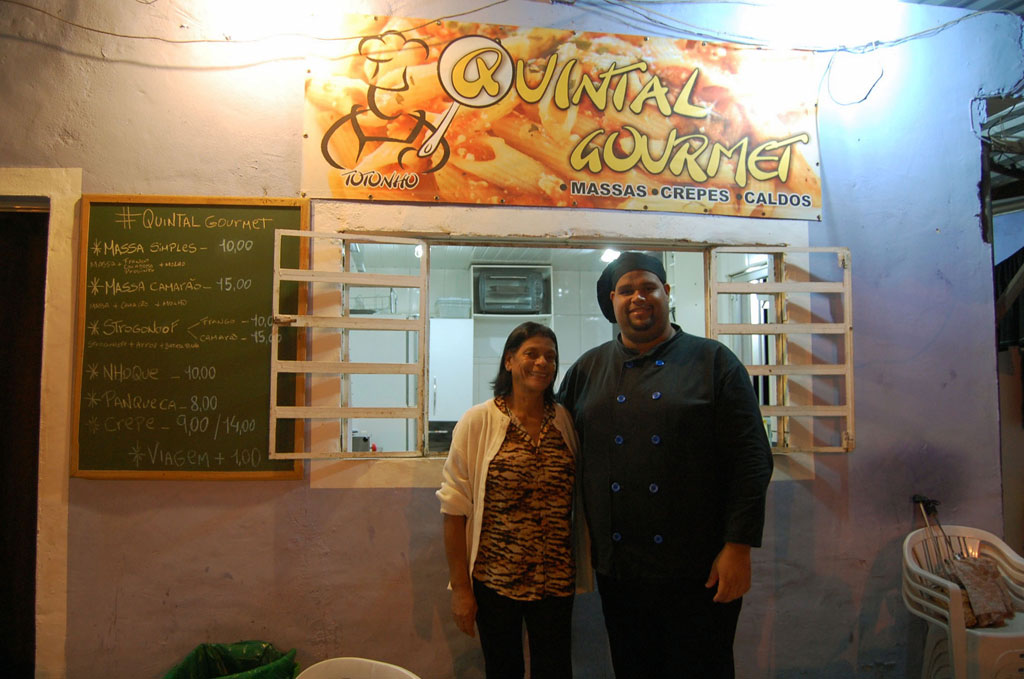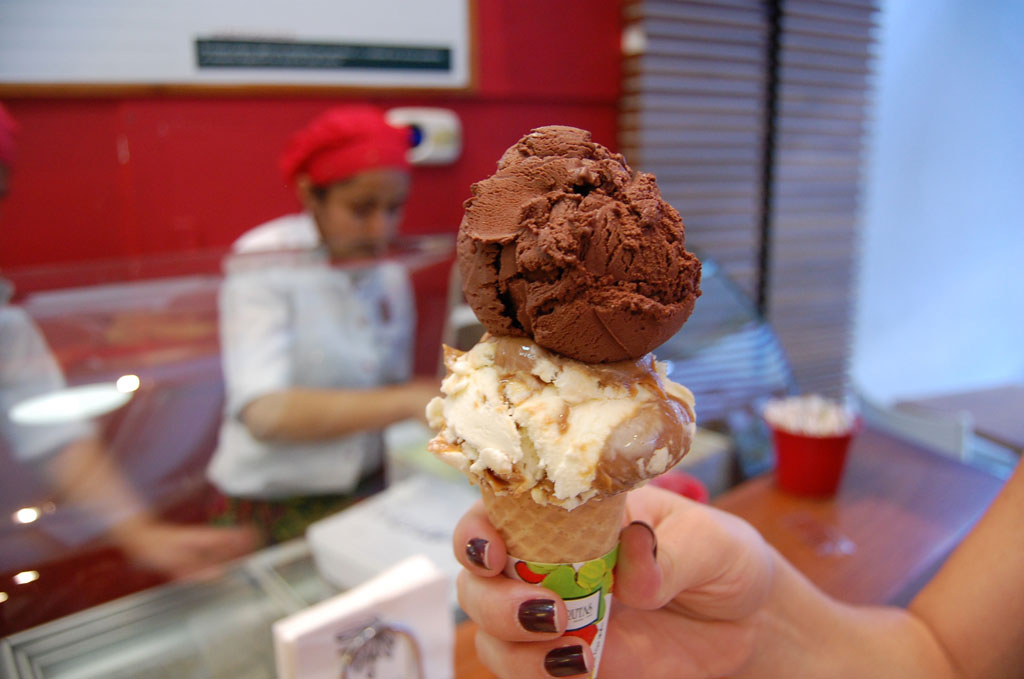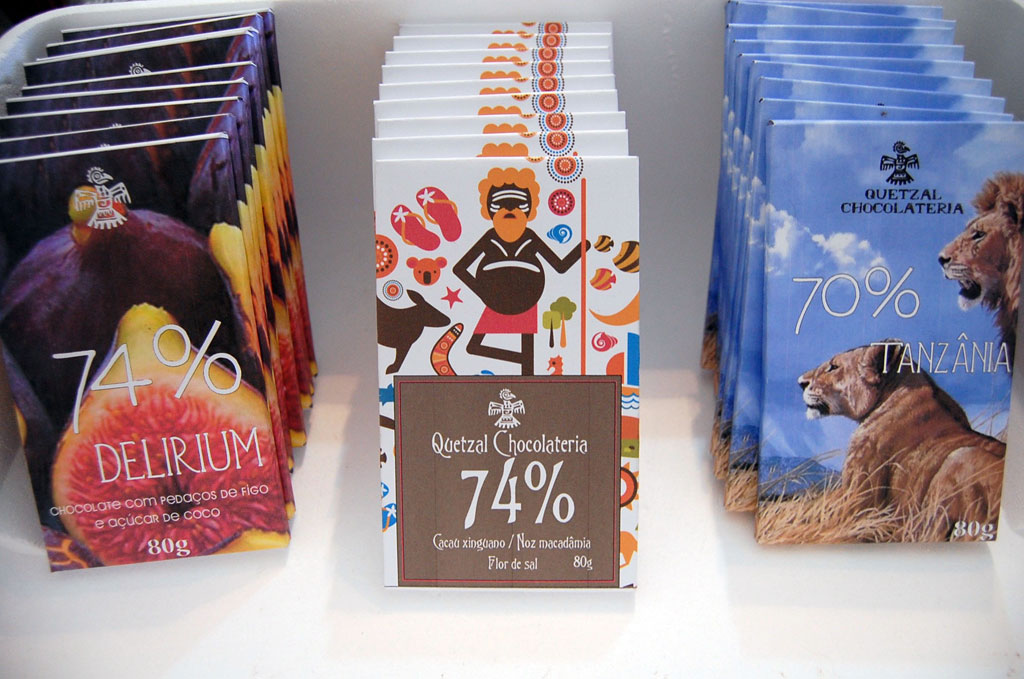We can't find the internet
Attempting to reconnect
Something went wrong!
Hang in there while we get back on track
Search results for "Taylor Barnes"
Rio
Café Lamas: Classic Meals, with a Side of History
From the street, Café Lamas looks almost intentionally nondescript. A fluorescent-lit bar with a glass case of snacks and a few metal chairs would make it identical to any other lanchonete (snack bar) across the city, if it weren’t for the shadowy doorway behind the bar’s aisle. Behind that door awaits a blast from the past. Café Lamas is Rio de Janeiro’s oldest restaurant – a respectable 138 years old in a city that is rapidly putting on a new face as it buzzes with Olympic, hotel and condominium construction – and the place radiates a sense of history and tradition. Bow-tied waiters politely bend as guests enter the dining room, which is dimly illuminated by lamps on ornate cast-iron mounts.
Read moreRio
Quiosque do Português: A Funky Caipirinha Hut Grows Up
It might have become one of the more fashionable places in Rio for a caipirinha, yet the name of this father-son joint – “Portuguese Kiosk” – suggests humility. Indeed, the pair got their start a decade ago in one of the numerous huts that line the city’s beaches. While the majority of their competitors served the tasty, tried-and-true Rio basics – traditional caipirinhas made with cachaça; beer and French fries – to sandy-toed beachgoers, Manoel Alves, now in his early seventies, wanted to offer something different. He tried importing cheeses from Portugal, his parents’ homeland (hence the venue’s name), but found that the international products went bad too quickly to please health inspectors.
Read moreRio
Olympian Appetites: Rio's Top 9 Eating Experiences
Athletes, spectators and everyone else gathered in Rio for the Summer Olympics will have no shortage of good eating options – and not just in the usual touristed areas. We’ve rounded up some of our favorite spots around town. CADEG The 100,000-square-meter market is divided into three warehouse-style floors, with a pavilion just for flower sales at the rear of the second floor. (The building sits on an incline, so you can enter from the street either on the ground floor or from behind the second.) The market is open 24 hours. Early mornings on Thursday and Saturday are the top time for flower shopping. Saturday afternoon is Cantinho das Consertinas’s Festa Portuguesa, with up to 1,000 attendees queuing for a host of salt cod dishes on the second floor.
Read moreRio
Quintal Gourmet: House of the Loving Son
Quintal Gourmet is the story of a doting son, one who's also delighted to be able to spend more time in his home, the City of God. Yes, the one from the movie. Carlos Vinícius, 29, a man as towering as he is smiley, looks at his mother, wiry and fast-talking Joyce, with a doe-eyed affection that seems to be deeply mutual. "I always followed my mom," he says. Before Quintal Gourmet, the two worked as domestic help, with Carlos Vinicíus a caretaker for an elderly woman. When his 72-year-old patroa passed away, he longed to spend more time with his own community rather than leave the favela each day for work.
Read moreRio
Market Watch: Rio's Feira da Glória
Glória is a crossroads of Rio de Janeiro. It’s where the beach and bayside South Zone end before you hit the historical and commercial Centro. It’s home to the storied, luxurious Hotel Glória and the working-class favela Santo Amaro, a five-minute jog away through lines of rifle-armed soldiers meant to keep crack users at bay. There’s the state archdiocese by day, and by night, a red-light zone for legally operating transvestite prostitutes. It comes as no surprise then that Glória’s weekly feira is one of the city’s most authentic and most colorful street markets. Like the vendors on foot on Rio’s beaches, would-be restauranteurs experiment at the feira before spreading their wings on the wider urban gastronomical scene.
Read moreRio
Cool Cariocas: The Best Ice Cream in Rio
Carioca summer culture is dictated by the heat. It’s courteous to ask guests if they’d like to take a quick shower upon arriving at your home (because everyone takes multiple showers a day in the summer). Beer at parties must be estupidamente gelado. Movie theaters sell out even for so-so films because the air conditioning inside is delícia. This year, the Rio city government took the bold step of legalizing the use of knee-length shorts for city employees and bus drivers during the summer. Four other critical ways that locals chill out are: sorvete (traditional ice cream), picolé (popsicles), gelato and sacolé (anything frozen in a plastic sack).
Read moreRio
Quetzal: When Life Gives You Cacao Beans
As an electrician in the Galeão international airport, Emerson Gama responded to emergencies like exploding transformers. But in his spare time, he was becoming a self-made expert on Latin American mythology, tropical ecology and sustainable resource management. These passions led him to quit his job four years ago; since then, Gama has become the Rio de Janeiro chocolatier with the most dedicated cult following. Only a few South Zone specialty stores carry his Quetzal chocolates, and where they come from is largely unknown, both to the clients on the long waiting lists for deliveries and to Gama’s own neighbors. The “secret” source?
Read more



